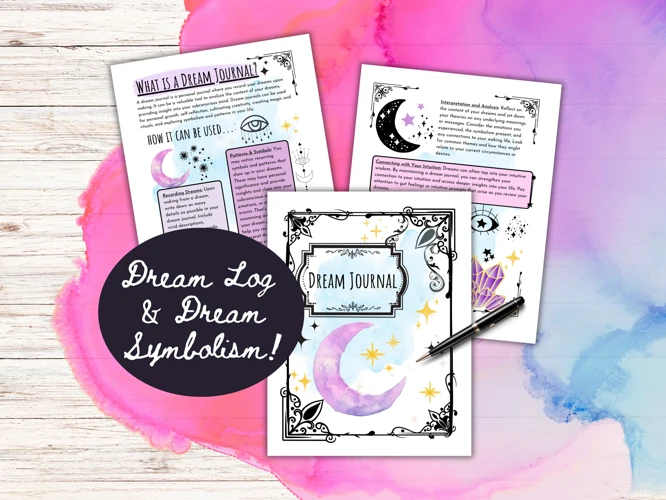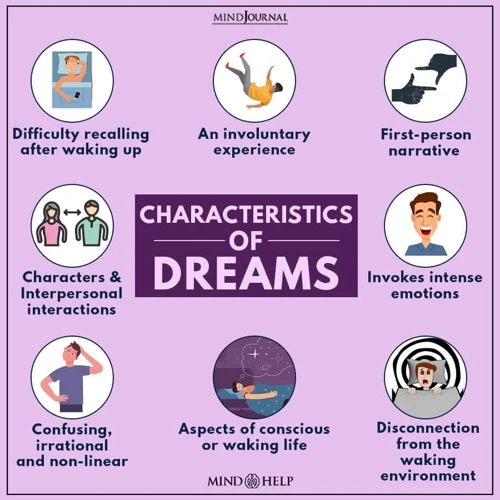Have you ever woken up after a night of dreaming and found yourself wondering, “What did that dream mean?” Dreams have long been a subject of fascination and curiosity, with people across cultures and generations searching for the hidden meanings behind them. In this ultimate dream dictionary guide, we will unlock the secrets of sleep by delving into common dream symbols and their interpretations. From falling dreams to being chased dreams, from teeth falling out dreams to flying dreams, we will explore the fascinating world of dreams and help you understand what your mind may be trying to communicate to you. Get ready to dive deep into the realm of dreams and discover the hidden messages that lie within.
The Importance of Understanding Sleep Dreams

Understanding sleep dreams is of paramount importance as they provide valuable insights into our subconscious minds. Dreams serve several purposes, such as processing emotions and experiences, problem-solving, and providing creative inspiration. By unraveling the hidden meanings behind our dreams, we can gain a deeper understanding of ourselves, our fears, desires, and unresolved issues. Interpreting dreams can offer guidance and help us make sense of our waking lives. Whether we have recurring dreams or vivid one-time experiences, by deciphering the symbols and messages within our dreams, we can gain a greater sense of self-awareness and personal growth. So, let’s dive into the enchanting world of sleep dreams and unlock their secrets!
Common Dream Symbols and Interpretations

Dreams are often filled with symbols that hold significant meanings and interpretations. By analyzing these common dream symbols, we can gain a deeper understanding of our subconscious thoughts and emotions. One common dream symbol is falling, which often represents a lack of control or insecurity in waking life. Flying dreams, on the other hand, are often associated with feelings of freedom and empowerment. Teeth falling out dreams may signify feelings of vulnerability or a fear of losing power. Being chased in a dream can reflect anxieties or unresolved issues in our lives. Naked in public dreams often indicate feelings of vulnerability or a fear of judgment. Exam dreams may represent feelings of pressure or a need for validation. Death dreams can symbolize the end of a particular phase or transformation. Water dreams often relate to emotions and the subconscious mind. Celebrity dreams may reflect our desires for fame or recognition. Animal dreams can offer insight into our instincts and behaviors. Lastly, house dreams can contain various meanings and are often associated with our personal identity and the different aspects of our lives. By understanding these common dream symbols and their interpretations, we can gain valuable insights into our inner selves.
1. Falling Dreams
Falling dreams are one of the most common and intriguing dream experiences. When we dream about falling, it often symbolizes a loss of control or a sense of insecurity in our waking lives. This dream can stem from various factors, such as stress, anxiety, or fear of failure. It may also indicate a need to let go of certain situations or relationships that are causing us emotional turmoil. While falling dreams can be unsettling, they can also serve as a wakeup call to evaluate our fears and confront them head-on. It’s essential to recognize the specific details and emotions surrounding the falling dream to fully understand its personal significance. So, if you find yourself plunging into the abyss of a falling dream, take a moment to reflect on what areas of your life might be causing you to feel out of control and empowered for positive change.
2. Flying Dreams
Flying dreams are among the most exhilarating and liberating experiences one can have while asleep. These dreams often evoke a sense of freedom, empowerment, and transcendence. The act of flying in a dream can symbolize breaking free from limitations, gaining a new perspective, or feeling in control of one’s life. It may also represent a desire for adventure, escape, or the pursuit of higher goals. Flying dreams can vary in intensity and context, from gracefully soaring through the sky to hovering just above the ground. The emotions experienced during these dreams can provide valuable clues to their meaning. Whether you find yourself flying effortlessly or struggling to stay airborne, pay attention to the emotions and sensations you feel within the dream, as they hold the key to unraveling its significance. So spread your wings and explore the thrilling realm of flying dreams!
3. Teeth Falling Out Dreams
Teeth falling out dreams are one of the most common and intriguing dream symbols. When we dream about our teeth falling out, it can evoke feelings of vulnerability and powerlessness. This dream often symbolizes a loss of control, anxiety about appearance or aging, or fear of communication and self-expression. It can also indicate unresolved issues related to self-esteem and confidence. Exploring the possible interpretations of this dream can provide valuable insights into our subconscious thoughts and emotions. If you want to learn more about the symbolism of teeth falling out dreams, you can check out our in-depth article on the topic here.
4. Being Chased Dreams
Being chased dreams are incredibly common and can leave us feeling anxious and fearful even after waking up. These dreams often symbolize a sense of being pursued or overwhelmed by a problem or situation in our waking lives. The person or entity chasing you in the dream could represent an unresolved issue, a past trauma, or even aspects of yourself that you are trying to avoid or escape from. It is essential to pay attention to the emotions and actions in the dream, as they can provide valuable clues to better understand the message behind the dream. By confronting and addressing the underlying issues that these dreams may be pointing to, we can work towards finding resolution and regaining a sense of control in our lives. To explore more about dream symbolism, you can also check out our article on dreams of roses.
5. Naked in Public Dreams
5. Naked in Public Dreams
– Feeling exposed and vulnerable: One of the most common dream symbols, being naked in public often represents a sense of vulnerability and feeling exposed. It can reflect a fear of judgment or scrutiny from others in your waking life.
– Insecurity and self-esteem issues: Dreams of being naked in public can also stem from deep-seated insecurities and low self-esteem. It may indicate a lack of confidence or a fear of being seen for who you truly are.
– Fear of embarrassment or shame: These dreams may reflect a fear of making mistakes or being embarrassed in front of others. It could suggest that you are overly concerned about what others think of you and may be holding yourself back due to this fear.
– Stripping away facades: On a positive note, being naked in public dreams can also signify a desire for authenticity and the need to let go of pretenses. It may indicate a willingness to expose your true self and let others see you for who you are.
– Gaining self-acceptance: This dream may be an invitation to embrace and accept your flaws and imperfections. It encourages you to let go of societal expectations and be comfortable in your own skin.
It’s important to note that dream symbolism can vary for each individual, so personal association and context should be considered when interpreting dreams. If you want to unravel the deeper meanings of this dream or any other dream symbol, explore our comprehensive dream dictionary guide to gain further insights on your subconscious thoughts and emotions.
6. Exam Dreams
Exam dreams are a common phenomenon that many individuals experience. These dreams often reflect our concerns about performance, evaluation, and self-worth. When we dream about exams, it can signify feelings of anxiety, stress, and a fear of failure. These dreams may manifest in different ways, such as arriving late for an exam, being unprepared, or even forgetting to study. However, exam dreams can also indicate a desire for growth, learning, and achievement. They may serve as a reminder to prioritize our goals and take steps towards success. To explore more about dream symbolism, check out our comprehensive guide on hostage dreams. Through dream analysis, we can gain valuable insights into the complex layers of our subconscious thoughts and emotions.
7. Death Dreams
Death dreams, often perceived as morbid or ominous, can actually hold profound meaning and symbolism. It’s important to approach them with an open mind and explore what they may represent. In dream interpretation, death often signifies change, transformation, and the end of a certain phase in life rather than literal mortality. It may indicate the need for personal growth or the desire to leave behind certain aspects of the past. Additionally, death dreams can symbolize the fear of change, loss, or the unknown. Pay close attention to the emotions and circumstances surrounding the dream, as they can provide further insights into its interpretation. Remember, death dreams are not necessarily negative, but rather an opportunity for introspection and embracing the cycles of life.
8. Water Dreams
Water dreams are a common occurrence and hold significant symbolism. When water appears in our dreams, it can represent various emotions and situations. Let’s explore the different interpretations of water dreams:
1. Calm Water: Dreaming of calm water often signifies tranquility, peace, and emotional stability. It may indicate a period of serenity in your life or a need for inner peace.
2. Rough Water: Conversely, dreaming of rough or turbulent water suggests emotional turmoil, stress, or challenging times ahead. It may reflect feelings of being overwhelmed or out of control.
3. Deep Water: Deep water in dreams can symbolize the unknown, hidden emotions, or unconscious desires. It may indicate a need to dive deeper into your emotions or explore parts of yourself that have been neglected.
4. Flowing Water: Flowing water, such as a river or stream, represents the natural flow of life. It signifies progress, movement, and the ability to adapt to change.
5. Drowning: Dreams of drowning in water often indicate feelings of being overwhelmed, suffocated, or out of control in your waking life. It may suggest a need to confront and overcome your fears or emotional challenges.
6. Clear Water: Clear water is often associated with clarity and purity. It signifies a state of emotional transparency, honesty, and truth.
7. Dirty Water: Dreaming of dirty or murky water indicates unresolved emotions, confusion, or a need for purification. It may suggest the need to address emotional issues or cleanse negative energies.
8. Tsunamis and Floods: These dreams represent intense emotional upheaval or overwhelming life events. They may indicate a need to confront and deal with a significant emotional event or upheaval.
Water dreams can offer profound insights into our emotional state and provide guidance for navigating our waking lives. By paying attention to the specific details and emotions within these dreams, we can gain a deeper understanding of ourselves and the challenges we may be facing.
9. Celebrity Dreams
Celebrity dreams, featuring famous people we admire or recognize, can be intriguing and often leave us wondering about their significance. When we dream of celebrities, it is not necessarily because we have a deep connection with them. Instead, these dreams may symbolize certain qualities or characteristics that we associate with the celebrity. For example, dreaming of a confident and successful actor may reflect our own aspirations for achievement and recognition. Alternatively, it could indicate a desire for attention or validation. Celebrity dreams can also serve as metaphors for various aspects of our lives, offering insights into our own self-image and aspirations. Exploring the symbolism and emotions attached to these dreams can provide valuable insights into our personal desires and ambitions. So, the next time you find yourself dreaming about a celebrity, take a moment to reflect on what they might represent in your own life.
10. Animal Dreams
Animal dreams are a fascinating aspect of the dream world. When animals appear in our dreams, they often carry significant symbolism and meaning. Each animal has its own unique characteristics and traits, which can provide insights into our own behavior, fears, or desires. For example, dreaming of a wolf may represent our connection to instincts and intuition, while dreaming of a butterfly could symbolize transformation and growth. Whether we encounter domestic animals, wild creatures, or mythical beasts in our dreams, exploring the symbolism of these animal encounters can offer valuable insights into our subconscious minds and guide us on our personal journeys of self-discovery. So, pay attention to the animals that visit your dreams, as they may have important messages to convey.
11. House Dreams
House dreams are a common theme in the realm of sleep dreams. They often symbolize different aspects of our lives and represent our sense of self, stability, and security. The interpretation of house dreams can vary depending on the specific details and circumstances within the dream. For example, dreaming of a house with many rooms may signify exploring different aspects of our personality and opportunities for growth. On the other hand, a dream of a dilapidated or crumbling house might suggest unresolved issues or a need for change in our lives. Dreams of houses can also be closely tied to our feelings of belonging, family, and the idea
Subscribe to Our Newsletter
Sign up to receive the latest news and updates.
Interpreting Colors and Emotions in Dreams

Interpreting colors and emotions in dreams adds another layer of understanding to the symbolic language of the unconscious mind. Colors can evoke specific emotions and carry significant meanings in our dreams. For example, red often symbolizes passion, anger, or power, while blue can represent calmness, tranquility, or sadness. The emotions we experience in our dreams provide valuable insights into our subconscious state and can reflect our waking life experiences. By paying attention to the colors and emotions present in our dreams, we can gain a deeper understanding of our emotional well-being, unresolved conflicts, or hidden desires. It is crucial to keep a dream journal and analyze the recurring themes and emotions connected to specific colors to decode their personal significance.
Keeping a Dream Journal for Analysis

Keeping a dream journal is an invaluable tool for analyzing and understanding our dreams. By recording our dreams immediately after waking up, we can capture the details, emotions, and symbols while they are still fresh in our minds. A dream journal not only helps us remember our dreams more vividly but also allows us to detect patterns, themes, and recurring symbols over time. It is essential to jot down every aspect of the dream, including colors, people, objects, and any emotions experienced. By identifying common elements in our dreams, we can start unraveling their meaning and gain a deeper understanding of ourselves. To enhance the effectiveness of a dream journal, it is helpful to create categories or tags to organize and analyze dreams further. Regularly reviewing and reflecting on our dream journal entries can provide profound insights into our subconscious mind and ultimately lead to personal growth and self-discovery. So grab a notebook and pen, and start unraveling the mysteries of your dreams!
Tips for Lucid Dreaming

Lucid dreaming is a phenomenon where the dreamer becomes aware that they are dreaming and can actively participate or manipulate the dream. It is a fascinating state of consciousness that allows individuals to have a sense of control and lucidity within their dreams. If you’re interested in exploring the world of lucid dreaming, there are several tips and techniques you can try to increase your chances of experiencing lucid dreams. Reality checks are a common practice where you question your reality throughout the day, helping you develop the habit of questioning your state of consciousness within dreams. Another technique is keeping a dream journal, which involves recording your dreams as soon as you wake up, allowing you to identify patterns and dream signs that could trigger lucidity. Additionally, practicing meditation and visualization techniques can help improve dream recall and enhance self-awareness within dreams. With dedication and practice, you can embark on a thrilling journey of lucid dreaming and unlock new realms of possibilities within your own mind.
Exploring Recurring Dreams and Dream Patterns

Exploring recurring dreams and dream patterns can provide valuable insights into our subconscious minds and reveal recurring themes or unresolved issues in our lives. Recurring dreams are those that happen repeatedly over a period of time, often with similar themes or symbols. By keeping a dream journal and noting patterns, emotions, and symbols, we can begin to unravel the significance of these dreams. It is important to pay attention to the emotions and feelings evoked by these dreams, as they may hold clues to unresolved issues or conflicts in our waking lives. Understanding the patterns and recurring themes in our dreams can help us identify areas of growth, address unresolved emotions, and make positive changes in our lives. So, let’s dive deeper into the world of recurring dreams and uncover the hidden messages they hold.
The Influence of External Factors on Dreams

External factors play a significant role in shaping our dreams. Stress and anxiety, for example, can manifest in our dreams as chaotic or unsettling scenarios. Our diet and sleep habits also influence our dream content, with certain foods and sleep patterns affecting the vividness and intensity of our dreams. Medications and substances, such as alcohol or sleeping pills, can alter dream patterns and even cause vivid or bizarre dreams. It is important to recognize that external factors impact the content and emotions experienced in our dreams. By understanding these influences, we can gain a better understanding of the connection between our dreams and our waking lives, and make adjustments to promote more positive and restorative dreaming experiences.
1. Stress and Anxiety
Stress and anxiety can significantly influence the content and intensity of our dreams. When we are under stress, our minds tend to process and express these feelings during sleep. Stress-related dreams often manifest as being chased, falling, or feeling trapped. These dreams may reflect our subconscious attempts to confront and resolve stressful situations. Anxiety dreams, on the other hand, can be characterized by feelings of unease, uncertainty, or fear. Common anxiety dreams include being unprepared for an exam or public speaking, getting lost, or encountering threatening situations. Recognizing the influence of stress and anxiety on our dreams can help us identify and address the underlying issues that contribute to these emotions, promoting better overall well-being.
2. Diet and Sleep Habits
Maintaining a balanced diet and healthy sleep habits can significantly impact the content and quality of our dreams. Certain foods and drinks, such as caffeine and spicy foods, can disrupt sleep patterns and lead to more fragmented dreams. On the other hand, foods rich in tryptophan, like turkey and bananas, can promote better sleep and potentially enhance dream vividness. Additionally, establishing a consistent sleep schedule, practicing relaxation techniques before bedtime, and creating a calm sleep environment can contribute to more restful sleep and potentially result in more memorable and meaningful dreams. By paying attention to our diet and sleep habits, we can optimize our dream experiences and gain a deeper understanding of the messages our subconscious mind is trying to convey.
3. Medications and Substances
Medications and substances can have a significant impact on the content and intensity of our dreams. Certain medications, such as antidepressants, sleep aids, and even some over-the-counter drugs, can influence our dream patterns and make them more vivid or cause unusual dreams. Additionally, substances like alcohol, nicotine, and recreational drugs can alter our sleep cycles, leading to intense and often bizarre dream experiences. It’s important to be aware of the potential side effects of medications and substances and how they may affect our dreams. By understanding the influence of these external factors, we can better analyze and interpret our dreams for a more comprehensive understanding of ourselves and our subconscious minds.
Connecting Dreams to Real Life
Connecting dreams to real life is a fascinating process that allows us to bridge the gap between the subconscious and the conscious mind. Dreams often contain elements and symbols that reflect our daily experiences, emotions, and relationships. By analyzing and interpreting our dreams, we can gain valuable insights into our waking lives. Dreams can serve as a mirror, reflecting our fears, desires, and unresolved issues. They can also provide guidance and clarity, helping us make decisions and navigate challenges. When we pay attention to the messages and themes in our dreams, we can make meaningful connections between our dream world and reality, leading to personal growth and self-discovery. So, let’s unravel the threads that tie our dreams to our everyday lives and unlock the wisdom they hold.
Conclusion
In conclusion, delving into the meanings and interpretations of sleep dreams can be an incredibly rewarding and illuminating journey. By understanding the symbols, emotions, and patterns within our dreams, we can gain valuable insights into our subconscious minds and unlock hidden aspects of ourselves. Keeping a dream journal, exploring recurring dreams, and analyzing the influence of external factors can all contribute to a deeper understanding of our dreams. Moreover, connecting our dreams to real-life experiences and emotions can help us navigate our waking lives with greater clarity and self-awareness. So, embrace the mysteries of your dreams, and let them guide you on a fascinating path of self-discovery and personal growth. Sweet dreams await!
Frequently Asked Questions
1. Can dreams predict the future?
While some people believe that dreams can predict the future, there is no scientific evidence to support this claim. Dreams are generally considered to reflect our subconscious thoughts, emotions, and experiences rather than provide glimpses of what is to come.
2. Why do we forget our dreams?
Forgetting dreams is a common phenomenon due to the nature of our sleep cycles. Dreams occur during the REM (rapid eye movement) stage of sleep, and once we wake up, the brain focuses on processing new information, causing dream memories to fade quickly.
3. Can dreams have multiple meanings?
Yes, dreams can often have multiple meanings depending on the individual and their unique experiences. Symbols and interpretations can vary, so it’s essential to consider personal context when analyzing dream symbolism.
4. Are nightmares a sign of psychological issues?
Not necessarily. Nightmares are a natural part of the dream experience and can be triggered by various factors such as stress, anxiety, or even certain medications. However, recurring nightmares or those causing significant distress may warrant further exploration with a mental health professional.
5. Can we control our dreams?
Lucid dreaming is the practice of becoming aware that you are dreaming and gaining some level of control over the dream’s narrative. While not everyone can easily achieve lucid dreaming, there are techniques and practices that can increase the likelihood of experiencing it.
6. Do dreams have a time limit?
Dreams can occur in a matter of seconds or extend to longer periods, sometimes feeling like hours or even days. The perception of time in dreams can be fluid and distorted, allowing for a wide range of experiences within a shorter span of real-time.
7. Can dreams solve problems?
Dreams have a unique ability to process and integrate information from our waking lives, which can aid in problem-solving. Dreams often offer new perspectives, creative solutions, or emotional insights that can be valuable for tackling real-life challenges.
8. Why do some dreams feel so real?
During dreams, brain activity and cognitive processes are similar to those when we are awake. This similarity, combined with the emotional vividness of dreams, can make them feel incredibly real, often blurring the boundaries between the dream world and reality.
9. Can you have the same dream again?
Recurring dreams, where the same or similar themes or scenarios repeat over time, are not uncommon. These dreams can point to unresolved issues, persistent emotions, or patterns in our lives that require attention and reflection.
10. How can I improve dream recall?
To enhance dream recall, keeping a dream journal by the bed and writing down any fragments or details immediately upon waking can be helpful. Creating a consistent sleep routine, getting enough rest, and practicing mindfulness can also contribute to better dream recall over time.










